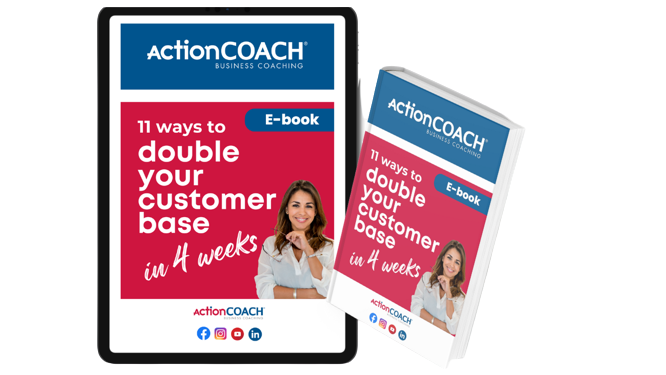As a business coach, it's important to have a variety of coaching styles to draw from to effectively support your clients. Each coaching style has its own set of advantages, disadvantages, and use cases. In this article, we’ll explore six common styles of business coaching and provide examples of how they can be used to help clients achieve their goals.
Use the table of contents to quickly jump between sections.
What Is Style in Business Coaching?
So, what is ‘style’ in business coaching? Style is the manner in which a coach delivers their services to clients, which includes techniques, tools, and methods.
Coaches can vary widely in their styles – some use a directive approach, while others prefer a more collaborative or supportive style. For instance, a directive coaching style may be appropriate for a client who prefers clear instructions, while a collaborative approach may be more appropriate for clients who want to be involved in the decision-making process. Finding the most effective coaching style for each client improves coaching outcomes and boosts client motivation, satisfaction, and retention.
It's important not to confuse style with format. In business coaching, format refers to the structure and medium of coaching sessions, such as 1:1 coaching, group coaching, team coaching, and coaching memberships. Format determines the size of the audience and the coaching goals, while style involves the coach's personality, communication style, and methods of engagement. It’s vital for a coach to develop a unique style that is effective, flexible, and adaptable to different clients and situations.
Let’s dive into six of the most common coaching styles to help you find your ideal approach.
Democratic Coaching
Democratic coaching is a style of coaching where the coach and the client work collaboratively to achieve goals. This style of coaching is based on the principles of democracy, where each person's ideas and opinions are considered and valued. When using a democratic coaching style, the coach encourages the client to participate in the decision-making process and allows them to take ownership of their goals and actions.
Pros
- Encourages collaboration and participation
- Empowers clients to take ownership of their goals
- Encourages creativity and innovation
Cons
- May be time-consuming due to the collaborative nature of the coaching process
- May lead to analysis paralysis if the client is indecisive
- Could potentially cloud the decision-making process with ‘too many cooks in the kitchen’
When This Style Is Most Applicable
- When the client is seeking a collaborative and participatory coaching experience
- When the client needs to develop their leadership skills by learning how to involve others in the decision-making process
Example:
A startup founder is looking to develop a new product line and wants to involve their team in the decision-making process. The coach uses democratic coaching to help the founder collaborate with their team to generate ideas and make decisions together.
Authoritarian Coaching
Authoritarian coaching is a style of coaching where the coach directs the client with clear instructions and information. This style of coaching is often used when the client is inexperienced or lacks knowledge in a particular area.
Pros
- Provides clear direction and guidance
- Saves time by providing quick and decisive action steps
- Useful when the client lacks knowledge or experience in a particular area
Cons
- Can be perceived as controlling and limiting
- May not allow for the client's input and creativity
- Can lead to a lack of accountability on the client's part
When This Style Is Most Applicable
- When the client needs quick, decisive action steps
- When the client lacks knowledge or experience in a particular area
Example
A business owner wants to expand their business but is unsure of where to start. The coach uses authoritarian coaching to provide clear instructions on how to conduct market research and develop a growth strategy.
Holistic Coaching
Holistic coaching is a style of coaching that considers the client's whole person, including their mind, body and spirit. This style of coaching emphasises the interconnectedness of all aspects of the client's life and how each area has a deep impact on the others. When utilising a holistic approach, the coach helps the client identify and work through any limiting beliefs or blocks that may be hindering their progress.
Pros
- Addresses the client's whole person, leading to deeper and more meaningful change
- Helps the client identify and work through any limiting beliefs or blocks
- Encourages self-awareness and personal growth
- Often encourages a healthy relationship between coach and client
Cons
- Can be time-consuming due to the need for introspection and self-reflection
- May not be suitable for clients who prefer a more structured, action-oriented coaching approach
- Can often be confronting for clients who aren’t ready or willing to explore the blockages in their personal or professional lives
When This Style Is Most Applicable
- When the client is seeking personal growth and development to help elevate their professional life
- When the client is dealing with personal or emotional issues that are impacting their business
Example
An entrepreneur is struggling with work-life balance and feeling burnt out. The coach uses holistic coaching to help the client identify and work through behaviours, patterns, limiting beliefs and blocks that may be contributing to their stress.
Vision Coaching
Vision coaching is a style of coaching that focuses on helping clients develop a clear, compelling vision of their desired future. This style of coaching is often used to help clients identify their goals, priorities and values, and then, using this vision, create a solid and informed action plan to achieve it.
Pros
- Provides clarity on the client’s long-term goals and objectives. By creating a clear, compelling vision, clients are more likely to stay motivated and focused on achieving their goals.
- Builds confidence in the client’s ability to achieve their desired future state. By breaking down the vision into achievable steps, clients can see progress and gain momentum towards their goals.
- Enhances creativity and encourages clients to think outside the box to explore new ideas and possibilities. By creating a compelling vision, clients can tap into their creativity and develop innovative solutions to challenges.
Cons
- Can be time-consuming. Developing a clear, compelling vision can take time and effort. It may require clients to reflect deeply on their goals, values and priorities, which can be a challenging and sometimes uncomfortable process.
- May not be suitable for all clients. Some clients may not be interested in developing a long-term vision or may prefer a more immediate focus. For example, clients who are facing urgent challenges may prefer a more tactical coaching approach.
When This Style Is Most Applicable
- Career planning. Vision coaching can be helpful for clients who are looking to develop long-term career plans. By developing clear visions of their future careers, clients can identify the skills, experiences and resources needed to achieve their goals.
- Strategic planning. Vision coaching can also be used to help clients develop long-term strategic plans for their businesses or organisations. By creating clear, compelling visions, clients can align their goals and objectives with the needs of their stakeholders.
- Personal development. Vision coaching can help clients develop clear visions of their ideal future states, which can serve as roadmaps for personal growth and development.
Example
A client is a mid-level manager in a large corporation. They’ve been with the company for several years but are feeling unfulfilled and unsure about their future career path. They’re interested in exploring their options but are not sure where to start. This is the perfect opportunity to implement vision coaching.
Mindful Coaching
Mindful coaching is a coaching style that involves being fully present in the moment, without judgment, and with a focus on the client's inner experience. The coach's role is to facilitate the client's awareness and gain an understanding of their thoughts, emotions and behaviours. The goal is to help clients develop a greater sense of self-awareness, improve their decision-making abilities, and enhance their overall well-being.
Pros
- Helps clients become more self-aware and mindful
- Encourages clients to take responsibility for their thoughts, emotions, and behaviours
- Can lead to better decision-making and improved overall well-being
Cons
- May not be effective for clients who struggle with introspection
- Requires a coach who is skilled in mindfulness techniques and able to create a safe, supportive environment for the client
When This Style Is Most Applicable
- A client is experiencing stress and anxiety and wants to learn how to manage these feelings more effectively
- A client wants to improve their emotional intelligence and communication skills
- A client is seeking personal growth and self-discovery
Example
A client is feeling stuck and is getting frustrated at not being able to produce a solution straight away. A mindful coach might ask a client to focus on their breath and notice any thoughts or feelings that arise without judgment. They might also encourage the client to practice mindfulness meditation and incorporate other mindfulness techniques into their daily routine to help boost creativity and acceptance of the situation.
Developmental Coaching
Lastly, developmental coaching is a coaching style that focuses on helping clients reach their full potential by identifying their strengths, weaknesses, and areas for growth. When practising this style, the coach's role is to challenge the client to set ambitious goals, provide support and guidance, and hold them accountable for their progress. It’s all about the path forward and how the client can use key understandings of themselves to establish actionable steps towards achieving their goals.
Pros
- Can help clients achieve their full potential and reach their goals
- Encourages clients to take ownership of their growth and development
- Provides structure and accountability for the coaching relationship
Cons
- May not be effective for clients who are not motivated or lack direction
- Can be challenging for coaches who are not skilled in goal-setting and performance coaching
When This Style Is Most Applicable
- A client wants to advance their career and needs help identifying and developing the skills and competencies required for their desired role
- A client is seeking personal growth and wants to work on developing their leadership skills
- A client has plateaued in their career and wants to identify new opportunities for growth and development
Example
A developmental coach might work with a client to identify their strengths and weaknesses, set SMART goals, and develop a plan of action to achieve those goals. The coach would provide ongoing support and feedback, and help the client stay accountable for their progress.
Next Steps
Now that you have a good understanding of each of the fundamental coaching styles, let’s talk about implementing them. If you're a business coach looking to upskill, ActionCOACH’s comprehensive 90-day onboarding process can help you define and cultivate a style that works best for you and your ideal client persona.
With training, support, and access to a global community of coaches, you can develop the skills and expertise you need to provide world-class coaching services to your clients. Click here to book a discovery session.

